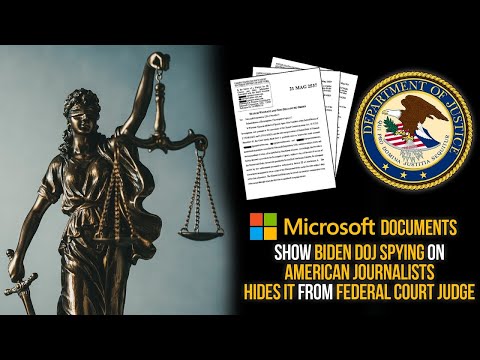
WASHINGTON, D.C. – Conservative undercover group Project Veritas claimed in a court filing this week – using documents obtained from Microsoft as evidence – that the Department of Justice secretly seized emails from the organization’s reporters while circumnavigating the orders of a federal judge in the process.
Lawyers for Project Veritas made the allegations on Tuesday as a part of its current battle against the DOJ; in November 2021, FBI agents had conducted a raid and searched the apartment of Project Veritas founder James O’Keefe – after having previously raided the homes of two other Project Veritas members – as part of their investigation into the theft of the diary of Ashley Biden, President Joe Biden’s daughter.
It was reported that the Justice Department has been investigating the diary’s disappearance since October 2020; at that time, a Biden family member had told authorities that Ashley had personal belongings stolen in a burglary.
The diary was later presented to O’Keefe in an attempt to sell it due to “explosive allegations” contained within, but O’Keefe stated that his organization declined to publish it since they were unable to confirm that it was authentic at that time. Instead, O’Keefe said that Project Veritas turned it over to law enforcement.
O’Keefe’s cell phone was seized during the raid on his apartment, an act that Project Veritas is actively fighting against due to the phone reportedly containing “a large amount of attorney-client privileged material, First Amendment-protected material, as well as confidential donor information.”
Judge Analisa Torres, who is presiding over the case, had appointed a “special master” to review the material on O’Keefe’s phone and determine what material the DOJ may have access to, and what material would be considered privileged and thus, untouchable.
However, lawyers for Project Veritas are asserting that the DOJ went behind Judge Torres’ back by issuing clandestine subpoenas to Microsoft to obtain emails of Project Veritas reporters; some of these alleged subpoenas – which were obtained by organization’s attorneys and presented as evidence in Tuesday’s court filing – took the form of gag orders that prohibited Microsoft from saying anything about the DOJ’s actions.

“It appears that the government misled this court by omission, failing to disclose during the briefing and arguments over the appointment of a special master that the government had already obtained through these surreptitious actions many of the privileged communications this court charged the special master with protecting,” court documents filed by Project Veritas’ legal team read.
The DOJ’s subpoenas enabled them to get a hold of all emails from an unnamed Project Veritas reporter between January 1, 2020 and January 26, 2021, which the DOJ alleges contain “evidence of communications regarding or in furtherance of the subject offenses, such as communications with or regarding Ashley Biden, President Joseph R. Biden, Jr. (and representatives thereof), and/or Ashley Biden’s associates regarding her stolen property.”
The American Civil Liberties Union (ACLU) also issued an official statement condemning the federal government’s overreach.





Comments are closed.